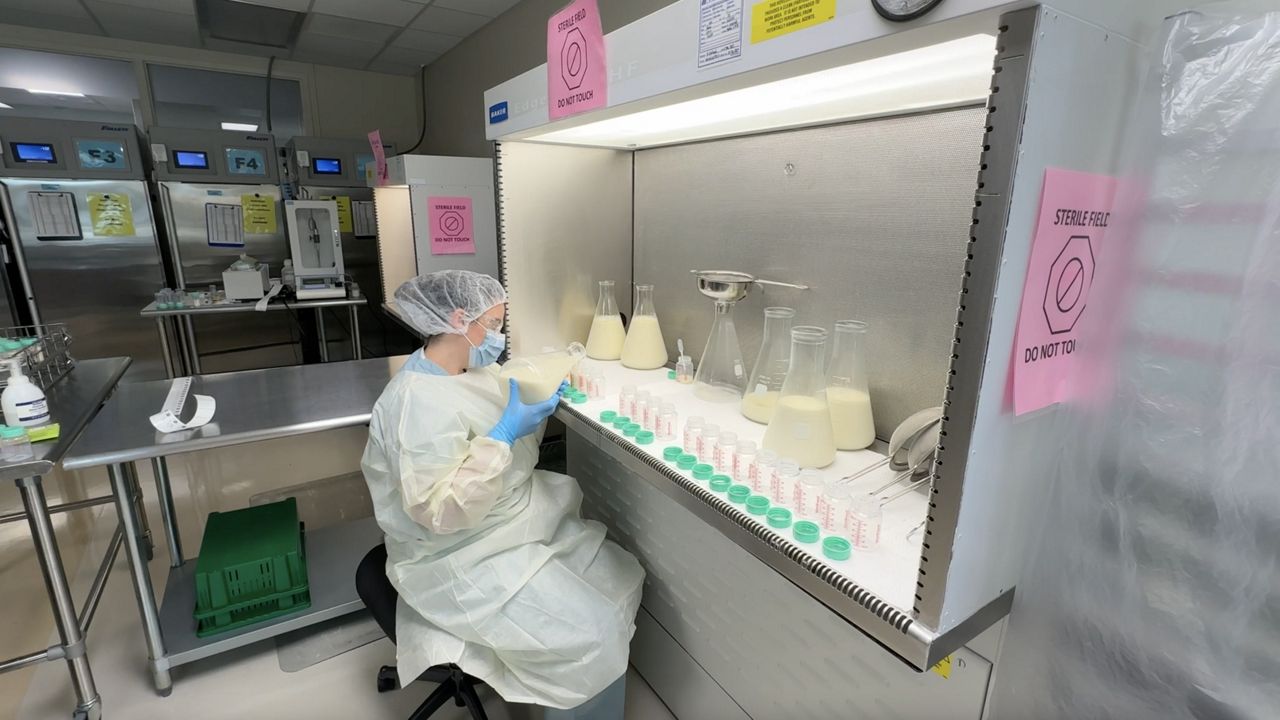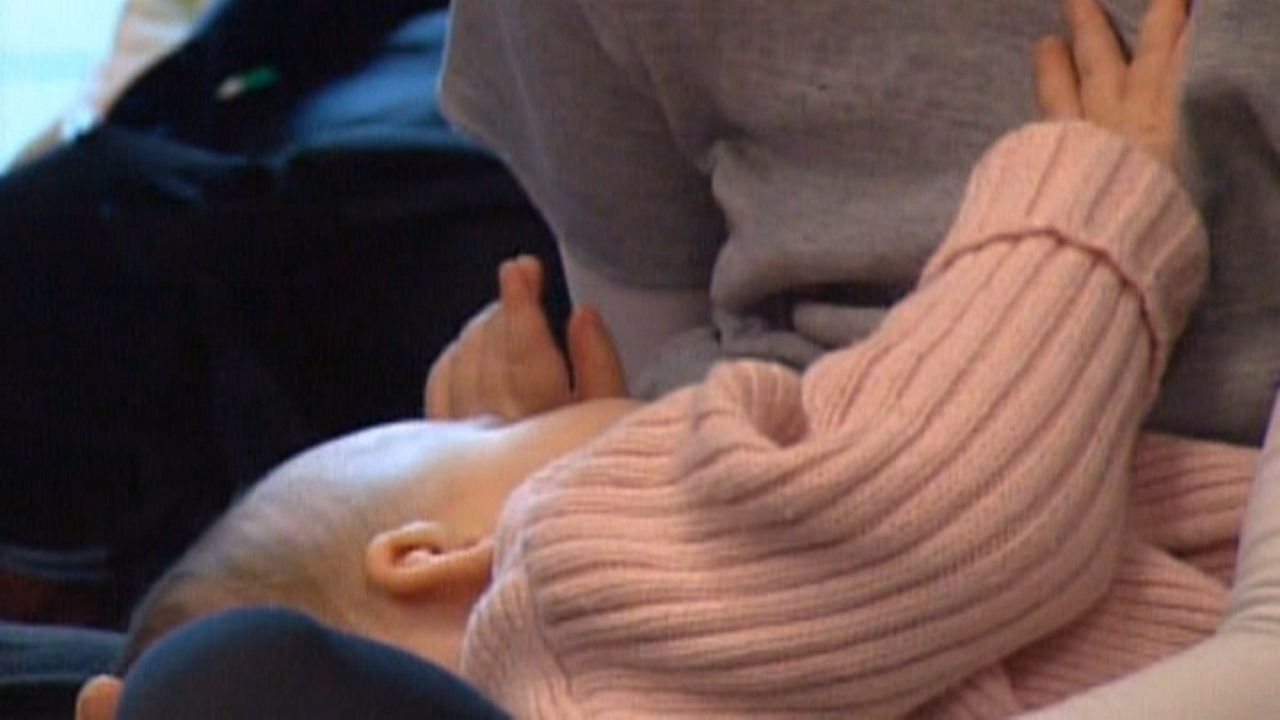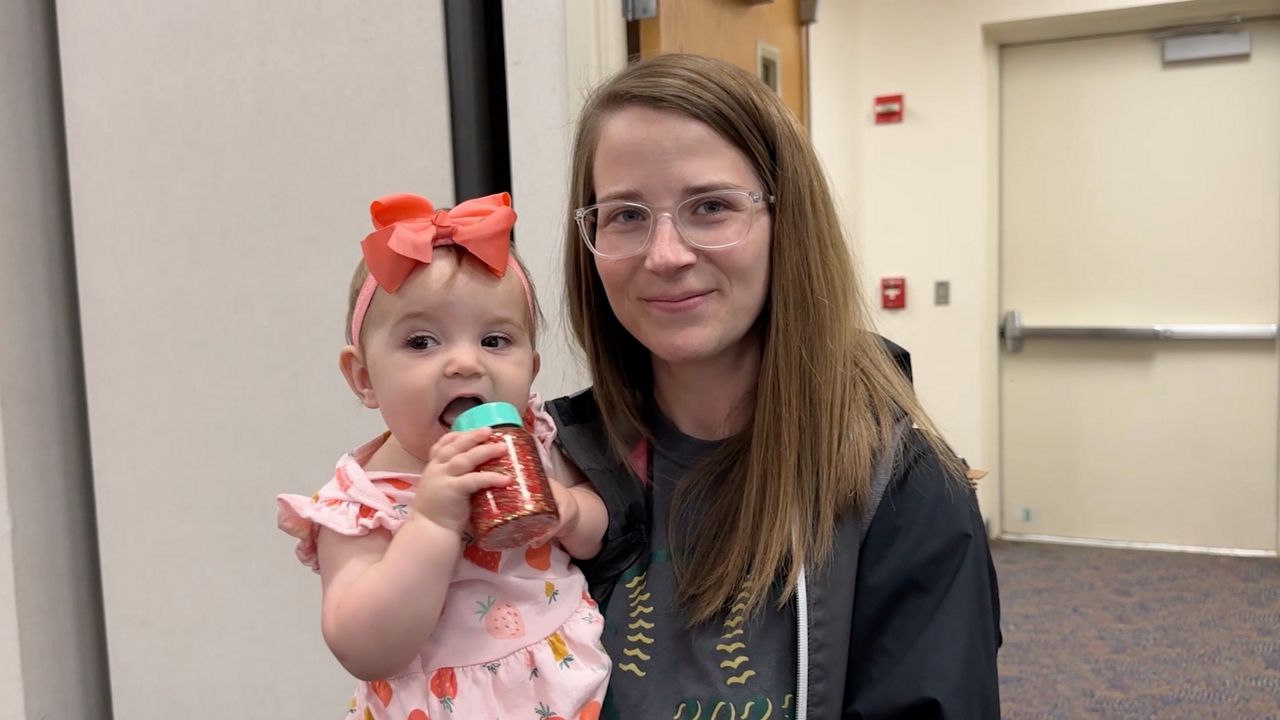CARY, N.C. — North Carolina’s only Milk Bank recently held a celebration and donor drive event in honor of World Human Milk Donation Day.
Mother’s Milk Bank at WakeMed Hospital in Cary provides safe pasteurized donor breast milk to babies in NICUs across the state and along the East Coast. Now they’re reaching out to the community, hoping to recruit more donors because the demand is so high.
Mother’s Milk Bank is a member of the Human Milk Banking Association of North America. The nonprofit has to meet very high standards, especially since they serve vulnerable premature babies.
“Breast milk is one of those things. We call it ‘liquid gold’ here. It is something that really is life sustaining nutrition,” Kerrie Gottschall, the WakeMed Milk Bank manager, said.
The Milk Bank says more than 10,000 babies are born prematurely in North Carolina every year. Research shows breast milk can be life saving for them, however, and that’s where the Milk Bank comes in.

“She's actually actively bottling and pouring our milk. She has set up her bottles for the day for this batch of milk,” Gottschall said. “We're looking for nutritional content. We're looking for calories, protein and fat. We just want to ensure that the product we're sending to our NICUs is of best quality.”
The nonprofit, which has strict quality control and standards, processes about 66,000 milliliters of donated breast milk every day, or about 2,200 ounces.
“We have actually increased our operation here just because of the demand in the community is so high. So we used to do about 40,000 milliliters a day,” Gottschall said.
Right now, they have about 210 active donors, but they’re in need of more. Ideally, they’d have as many as 300 active donors.
“Right now, we've just seen an extraordinary need from our NICUs. And so because of that, we just need more milk coming in the door to be able to continue to pasteurize and make milk for our NICUs that we serve,” Gottschall said.
Gottschall says breast milk helps increase survival rates for premature babies, even helping prevent an intestinal disease known as necrotizing enterocolitis (NEC).
“That is the number one killer of children right now on under one year of age in the United States of America. There's not a lot of research on why it happens, but we know that donor milk helps prevent it,” Gottschall said.

During her time as a nurse, Gottschall has personally seen and felt the impacts of that disease.
“They're healthy one minute, the next minute they're sick. If it's a complete loss of their gut, then they die. For me, that's why I want this product that we provide to our babies to be the safest and best possible,” Gottschall said.
Additionally, about 10% of their donors are bereaved mothers, so they lost their baby but decided to pump and donate to the Milk Bank. Gottschall said many of those moms say it’s a way to honor their babies’ lives.
“They’re a blessing to us or a blessing to many others, but that's a way that they can honor their baby, and it's a way that they know helps babies survive and thrive. And I think of that every time we're here. My team thinks of that. We have people who don't have their baby to hold but are willing to continue to pump their milk to save other babies lives,” Gottschall said.
Those tragedies fuel her passion for the work the Milk Bank does. A mission that, Gottschall says, is only possible because of the generosity of hundreds of mothers.
“Donating and pumping your milk could be a full-time job. You know, when it takes you 30 minutes to pump, a good 30 minutes to clean up from that and then you have two hours and you're doing it again. The love that they have to help other babies survive and thrive is amazing,” Gottschall said.
As for how someone can donate, the Milk Bank says most breastfeeding women in good health can donate. There’s a screening process that starts with a simple online form. It includes getting signed off by your doctors and blood tests.
Mother’s Milk Bank at WakeMed distributes up and down the southeast part of the United States. A majority of the milk stays in North Carolina but some is sent to hospitals in Maryland, Florida and even Alabama.
If you’re interested in donating to the Mother’s Milk Bank or volunteering there, visit the Mother’s Milk Bank website for more information.








